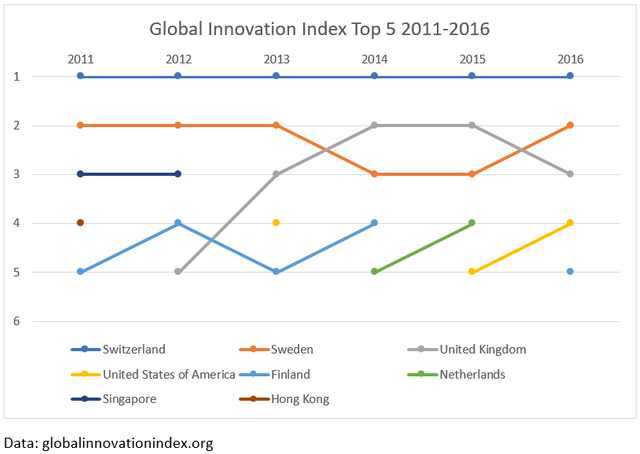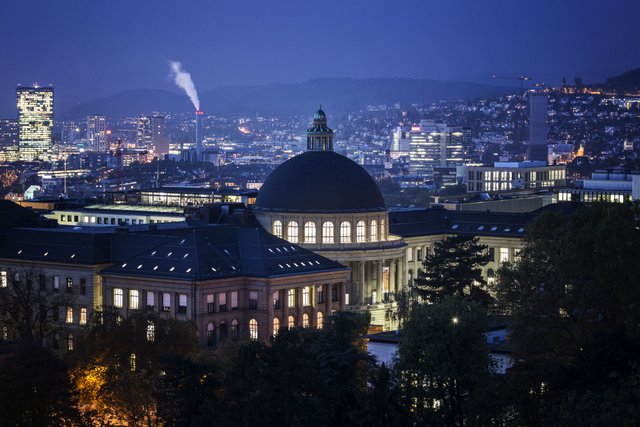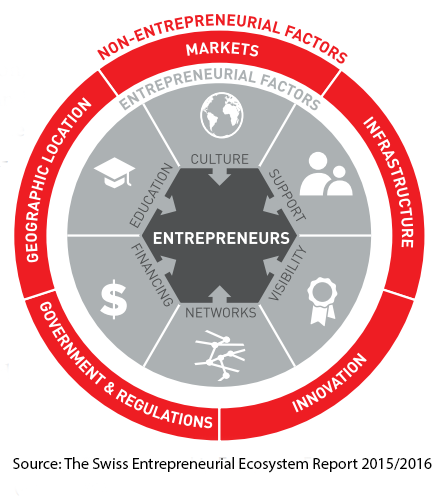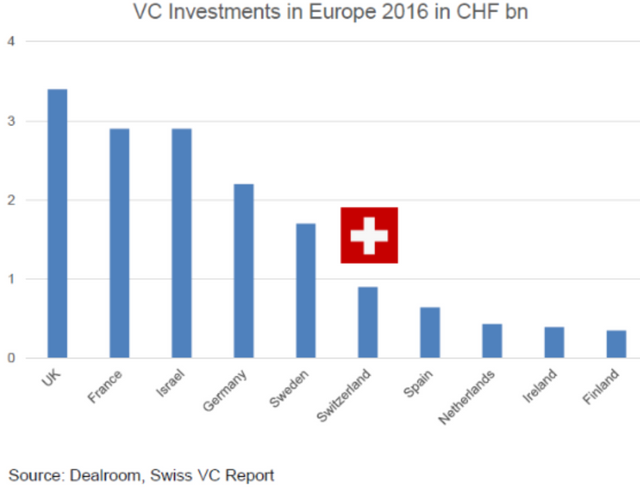Why Switzerland is the most innovative country in the world
When you think about Switzerland, the first things that will come to your mind will probably be chocolate, cheese, watches and banks. Yet, a little-known fact about Switzerland is, that even though it is so small, it is - and has been for a long time now - the most innovative country in the world. But why exactly is that?

Political Stability
Neutrality
Swiss neutrality is one of the main principles of Switzerland's foreign policy which dictates that Switzerland is not to be involved in armed conflicts between other states. This policy is self-imposed, permanent, and armed, designed to ensure external security and promote peace.
Switzerland has the oldest policy of military neutrality in the world; it has not participated in a foreign war since its neutrality was established by the Treaty of Paris in 1815.
Democracy
The Swiss People is very involved in politics. Any law can be challenged by the people and there are frequent referendums on which the people vote.
Those two factors make Switzerland very attractive for its inhabitants, which also shows in the number of immigrants to Switzerland. Switzerland is home to 2 million foreigners, equal to a quarter of the permanent resident population. For one part, this diversity in backgrounds and perspectives accounts for a great deal of innovation. Additionally, the beforementioned factors and the availability of talent in Switzerland makes it an attractive location for international Businesses. Google, for example, has its biggest campus, next to their headquarters in Silicon Valley, in Zurich.
Education
The authority for the school system is mainly delegated to the cantons by the Swiss constitution. The Swiss constitution sets the foundations for the educational system, namely that primary school is obligatory for every child and is free in public schools and that the confederation can run or support universities.
The first university in Switzerland was founded in 1460 in Basel, with a faculty of medicine. This place has a long tradition of chemical and medical research in Switzerland. In total, there are 12 Universities in Switzerland; ten of them are managed by the cantons, while two federal institutes of technology, ETHZ (Eidgenössische Technische Hochschule Zürich) in Zurich and EPFL (Ecole Polytechnique Fédérale de Lausanne), are under the authority of the State Secretariat for Education, Research and Innovation. In addition, there are seven regional associations of Universities for Applied Sciences (Fachhochschulen) which require vocational education and a special Berufsmatura, or a Fachmatura (a graduation by a Fachmittelschule) to study. Switzerland has a high rate of foreign students in tertiary education including one of the highest in the world of doctoral level students.
Many Nobel prizes have been awarded to Swiss scientists. More recently Vladimir Prelog, Heinrich Rohrer, Richard Ernst, Edmond Fischer, Rolf Zinkernagel and Kurt Wüthrich have received nobel prizes in the sciences. In total, 113 Nobel Prize winners stand in relation to Switzerland and the Nobel Peace Prize has been awarded to organizations residing in Switzerland nine times. Geneva hosts the world's largest particle physics laboratory, the CERN. Other important research centers are the Empa (Swiss Federal Laboratories for Materials Science and Technology) and Paul Scherrer Institute which belong to the ETH domain.
Data: en.wikipedia.org/wiki/Education_in_Switzerland

Swiss StartUp Ecosystem

Entrepreneurship Ecosystem Framework illustrates the factors, which influence entrepreneurial activities. Before going over the ecosystem players, I'd like to highlight two framework factors:
Market
Most competitive economy in the world (WEF, 2014)
GDP ´14 (nominal): USD 661 billion
GDP ´14 (PPP) / capita: USD 58’087
GDP ´14 (nominal) share world: 0.8%
Budget deficit: 0.4% (2015)
Doing Business in Switzerland
Stable national economy
Great government support for setting
up and scaling up a business
Low corporate tax rates
Early withdrawal of personal
retirement savings to become self-employed
StartUps
12.000 new firms are founded each year, corresponding to of the entire population of 2% Swiss companies.
Above average Survival Rates
When compared internationally, Swiss startups have above-average survival rates
Investors
Invested in Innovation
On average, 3.1% of GDP flows into R&D.
Venture Capital Investments in Europe
Switzerland is number six with regards to Venture Capital Investments in Europe with close to one billion Swiss Francs invested.
2016 – CHF 909 million for startups
2016 – 151 financing rounds

Corporates
The corporate players are very active in Switzerland. Companies offer easier market access and expert knowledge, which can help StartUps grow.
StartUp and Innovation departments, whose Enterprises have a more hands-off approach, tend to be a lot more successful. The best example, in my opinion, is the Swiss Postfinace, which has developed an innovative mobile and online payment called Twint.
Accelerators, Incubators, Labs
There are many foundations, both private and also public support StartUps, research and innovation. The public support comes mostly in the form of coaching. Most programmes have very strict requirements that have to be met to be able to apply.
The least restrictive accelerator programme is Venture Kick, which grants up to 30'000 CHF of equity free venture capital to promising Swiss StartUps.
Startup Initiatives, NGOs
Initiatives like the ETH Entrepreneur Club are close to academia and promote Entrepreneurship among students.
StartUp Hotspots
According to the Swiss Entrepreneurial Ecosystem Report, over 50% of high growth StartUps are founded in the Cantons of Vaud and Zurich. Both cantons are host to the federal institutes of technology, which is a huge contributing factor for this statistic, in my opinion. Additionally, the canton of Vaud has invested a lot into promoting itself as entrepreneurially friendly.
The canton of Zug is also known as Crypto Valley, because of the high density of Blockchain and Cryptocurrency related companies, that have popped up there.
Swiss StartUps you may have heard of
The question, people should ask, is “What Swiss StartUps could I have heard of?”. The Swiss Ecosystem is not all Hot Air and is home to a number of great and internationally successful and renowned StartUps.
Etherum
Ethereum is an open-source, public, blockchain-based distributed computing platform featuring smart contract (scripting) functionality. Ethereum is a decentralized platform that runs smart contracts: applications that run exactly as programmed without any possibility of downtime, censorship, fraud or third-party interference.
Ava
Ava is a wristband that tracks women’s cycles and health to predict the perfect fertile window. It also keeps track of the user’s health during pregnancy.
This post was originally published on my personal website: https://justuspfeiffer.com/why-switzerland-is-the-most-innovative-country-in-the-world/